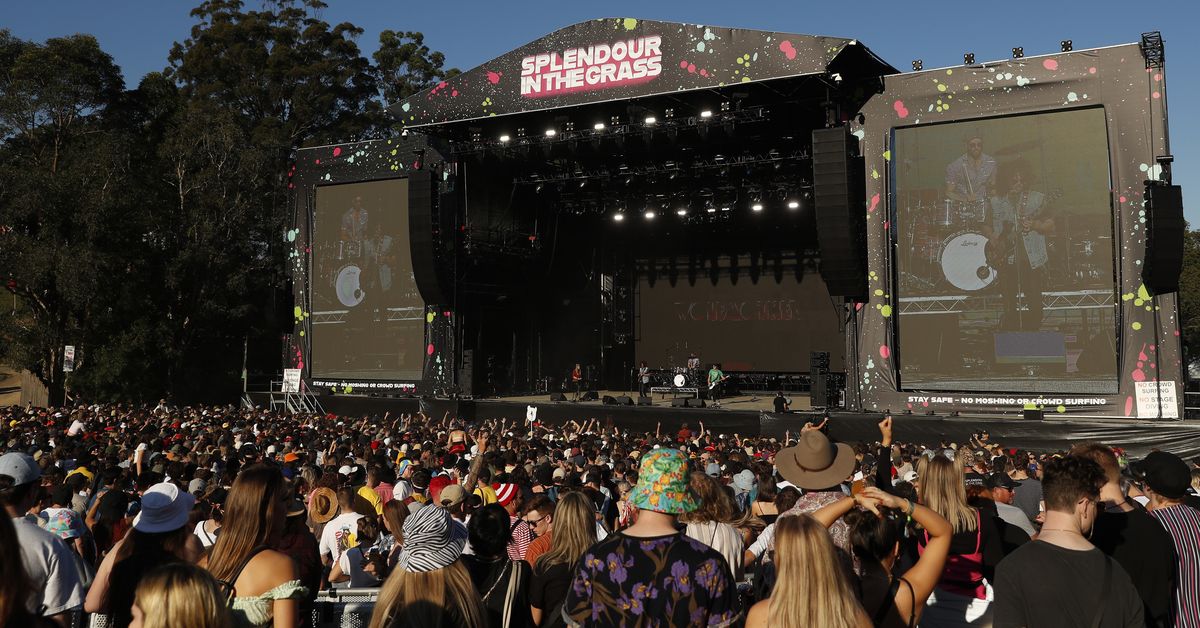The NSW government will appeal a landmark decision on the lawfulness of police strip searches at music festivals, which has been slammed as “needless waste of resources”.
Raya Meredith was the lead plaintiff of a class action that went before the Supreme Court after she was subjected to an invasive strip search when she was asked to remove a tampon at Splendour in the Grass in 2018, which uncovered no drugs on her.
 Splendour in the Grass in Byron Bay. (Getty)
Splendour in the Grass in Byron Bay. (Getty)
Slater and Gordon, which ran the class action lawsuit involving 3000 people who were strip-searched in similar circumstances at music festivals between 2016 to 2022, had been negotiating a settlement between the state and the claimants.
But today, the state indicated it would appeal the court’s decision.
“The State has filed a Notice of Intention to Appeal in this matter,” NSW Police said in a brief statement.
Premier Chris Minns earlier this morning said the government supported the police’s decision to move to appeal, adding that strip searches as “still an important measure to keep people safe”.
“Police are caught in a difficult position where drugs are still illegal, they’re not legal, particularly the supply of drugs at music festivals, and they’ve got a responsibility to keep people safe,” he said.
“I believe they’ll use that power, if it was granted to them via appeal, judiciously, not in a broad, sweeping way, and they’ll make sure that they are fully trained.
“We’ll wait for the court to make a decision.”
Police Minister Yasmin Catley said she was aware the notice of intention to appeal had been lodged and declined to comment further.
Slater and Gordon senior associate in class actions, William Zerno, argued thousands of others involved in the class action were searched in similar circumstances to Meredith, with hundreds searched at the same music festival and by the same police officers.
 Premier Chris Minns earlier this morning said the government supported the police’s decision to move to appeal. (Nine)
Premier Chris Minns earlier this morning said the government supported the police’s decision to move to appeal. (Nine)
“It is a matter for the state to explain why it is arguing that searches undertaken on the same basis as Raya’s were lawful when it admitted the unlawfulness of Raya’s search,” he said.
Zerno added the notice to appeal does not render the judgment any less effective and remains in place unless it is overturned in an appeals court.
“An appeal against this judgment will only delay justice being served for thousands of festivalgoers,” he said.
“And it will ultimately cost the State more if it does not resolve its liability now.”
Meredith said today’s development was “very disappointing”.
“The others in this class action deserve to have their cases heard and settled without further delay,” she said.
“It’s a needless waste of resources, and with the music festival season underway in NSW, I’d hate to think that the abuse of these extreme powers by police that I experienced might continue under a scenario where NSW Police appealed this judgment.
“It’s time that what is due is paid, apologies are made, and a clean slate imparted.”
Justice Yehia’s ruling earlier this month clarified the interpretation of the legislation, stating that a drug dog indication or a police officer’s suspicion of drug possession was insufficient to provide a lawful basis for a strip search at a festival setting.
 Justice Yehia’s ruling earlier this month clarified the interpretation of the legislation. (Getty)
Justice Yehia’s ruling earlier this month clarified the interpretation of the legislation. (Getty)
She noted two main reasons to conduct a strip search were if police suspect a high-end drug supply or that the person may have a weapon on them.
On Tuesday, a drug summit report commissioned by Minns recommended that the state implement a drug-checking trial at music festivals and pause the use of drug detection dogs and strip searches in the meantime.
The trial would include a health and peer workforce, harm-reduction advice, an exclusion zone and integration with the current drug surveillance and early warning system at music festivals.

